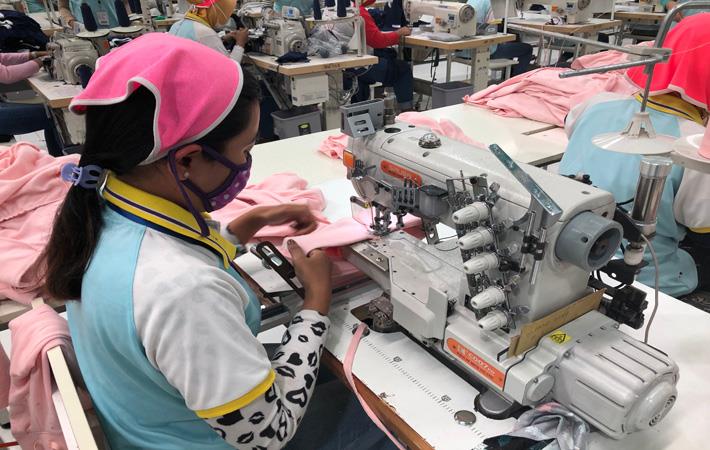The Bangladesh Garment Manufacturers and Exporters Association (BGMEA) recently requested the Bangladesh Bank for a special assistance scheme for the country’s readymade garment (RMG) sector to face the impact of the coronavirus outbreak in China on the supply chain. BGMEA president Rubana Huq on February 13 sent a letter to the bank governor Fazle Kabir.
The letter had a number of proposals, including formation of a disaster assistance fund, a special credit guarantee scheme and amending the back-to-back letter of credit (LC) procedures to support the sector, according to Bangla media reports.The Bangladesh Garment Manufacturers and Exporters Association (BGMEA) recently requested the Bangladesh Bank for a special assistance scheme for the country's readymade garment (RMG) sector to face the impact of the coronavirus outbreak in China on the supply chain. BGMEA president Rubana Huq on February 13 sent a letter to the bank governor Fazle Kabir.#
The disaster assistance fund may be extended to exporters to support unforeseen costs like air freight, sourcing of raw materials and accessories from alternate and more expensive options to complete the orders and cost of financing for the extended period, the letter said. While exporters will negotiate with buyers, banks should agree to extend the credit term by 30-60 days due to late arrival of raw materials and increased costs for the extended period, it said.
The Bangladesh Bank may consider a special credit guarantee scheme to encourage commercial banks so that they can continue to support the industry, Huq wrote in the letter.
She also requested the central bank for issuing policy directives to the scheduled banks to amend the respective clauses in the back-to-back LCs to make the payments to the suppliers conditional and justified in proportion to export proceeds.
China remains the largest trading partner of Bangladesh with total import worth $13.63 billion in the last fiscal year 2018-2019, she said. Of that figure, import of textile fibre and articles was worth $5.02 billion as around 46 per cent of the country’s textile raw materials come from China, she said.
The country’s import from China has already started slowing down and Chinese vessels at Chattogram port have come down to zero, she said.
Import from China decreased by 21 per cent in January and by 37 per cent in February 1-8, she said citing data from the National Board of Revenue.
The impact includes delays in the arrival of raw materials, late shipments and delivery and cash flow crisis, she added.
Fibre2Fashion News Desk (DS)
